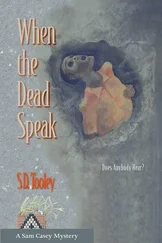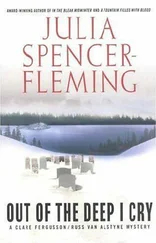At the other end of the phone she heard Bill Talbot’s sharp intake of breath.
“Clara Marshall was five foot five,” he said straight away.
Karen was not surprised. She would have expected her old boss to remember every salient detail of the case which she knew had bugged so much of his career.
“Thanks, Bill,” she said quietly. “I thought you’d know that.”
“So what do you think?” Talbot asked sharply.
“Same as you, I expect. But I’m trying to be led only by science.”
“I don’t know whether I want it to be her or not.”
“No. But if it is, then maybe we could get that bastard at last.”
“You know how I feel about that.”
“It wasn’t your fault, Bill.”
“I’d heard the gossip around the town. At the little girls’ school. Everybody had. We should have moved earlier. But you know all about that. One big cock-up.”
“With the benefit of hindsight, yes. But how many times have you and everyone else been over it all for almost three decades? Marshall was always so bloody plausible. And how many cases have there been in history of men murdering their entire family like this, for God’s sake? A tragic murder and then a suicide, yes. But not this. It’s just so unusual. And we always look for precedents, don’t we? Policemen and lawyers, that’s what we do. As for gossip? Well, it would be just crazy to act on gossip, which is so often malicious, too. Crazy. And if nobody has been reported missing by their family it’s rare to say the least to launch a missing-persons enquiry. A vicious circle, I know. But that’s how things were on this one. And do remember, there’s nobody who’s ever touched the bloody case who doesn’t have regrets, Bill.” Karen paused. “I know I do.”
“It was all history by the time you even came into the job, and you were just a kid when it happened. How could you have any regrets, Karen?”
“I guess it just always seemed close.” Karen didn’t want to go into that. “I lived next door to the Marshalls, remember,” she continued.
“Of course I remember. Your mother took the kids in after Clara disappeared. We interviewed her. Yes, I do realize, Karen, you lived it too.”
“I used to babysit Lorraine and Janine sometimes, never for long and only two or three times that I remember, for an hour or so when their mother went shopping or something. Did you know that?”
“No.”
“Only for pocket money. I was at that stage when I didn’t really like little kids around me. Well, it makes no difference, anyway.” Karen shrugged, made an effort to pull herself together.
“No, I don’t suppose it does. Look, do you fancy a jar or something later on? Go over things if you like, I might be able to help.”
Karen sighed. Bill Talbot had never been able to let go of this one, and she doubted he ever would. On the other hand, maybe he could help. He knew more about the case from the very start than anybody else in the world, that was for certain.
“It’ll have to be a hell of a lot later on. This is going to be a long long day.”
“How about if I come round the Bell about eight, eight thirty?” Bill Talbot was suggesting a pub close to the nick, somewhere pretty much on the spot. “You pop over when you can. I’ll just stay there. Time makes no difference to me nowadays, I’ve nothing else to do.”
Karen had never been able to imagine Bill Talbot in retirement. This was not a man who had been looking forward to the golf course or cultivating his roses. This was a man who had lived for his work. She considered for a moment the workload she knew faced her now that the skeleton had been found. And there were already other cases on her desk.
“All right,” said Karen. “But make it tomorrow night, will you? I think today is going to be impossible.”
“No problem,” said Bill as he hung up.
Karen replaced the receiver very slowly.
How could she have any regrets? Little did Bill Talbot know.
Throughout the rest of the day Karen was immersed in the complex business of setting up a modern murder investigation. And a murder investigation with a bit of a difference. One that involved a corpse that was at least a quarter of a century old. Paperwork and meetings with fellow officers kept her at Torquay Station until well past 10 P. M. when she gratefully beat a retreat home to her bed.
The following day dawned horribly. It was a truly ghastly morning. Wet, windy and cold. More like November than August.
“It would be,” muttered Karen as she dragged herself over to her bedroom window. “It just bloody well would be.”
She peered out at the sea. Summer or not, it looked iron-grey and extremely uninviting. There were big breakers even quite close in within the bay. Karen had made plans to visit the crime scene, and her first inclination was to change her arrangements. She had no wish to be aboard a boat in these conditions. But a combination of professionalism and bloody-mindedness forced her to proceed according to plan. Stoically she rummaged in a drawer for her thermal underwear and pulled on a tracksuit.
Three mugs of tea and two menthol cigarettes later, telling herself yet again that she really would give up smoking the following day, Karen put on a fleece and a hooded waterproof over her tracksuit and set off for the harbour. There a police dive boat was waiting to pick up her and Phil Cooper and take them to what passed for the crime scene. It was difficult to see quite how an old wartime wreck at 50 meters was a modern crime scene, but that was indeed what it had now become.
In spite of the inclement weather Karen decided to walk along the seafront to the harbour on the far side of the bay. There was, after all, never anywhere to park in Torquay once the tourist season was in full flow. Averting her eyes from the uninviting heaving grey mass of the sea, Karen concentrated on the matter in hand. She considered what she and Phil might achieve from their trip out to Berry Head. She realized there would be little to see, and although she was an amateur scuba diver she had neither the skill nor the inclination even to attempt the kind of diving necessitated. But Karen was the sort of detective who liked to see everything for herself and was hands-on to a degree not always considered proper in a senior investigating officer. Karen always liked to do, or at least sit in on, as much of the interviewing of prime suspects as she possibly could — to the irritation, she knew, of many members of her team. Reports on pieces of paper, or in e-mail form half the time nowadays, did not get through to Karen in the same way. She liked to feel the very texture of any crime she was investigating all around her and that meant being there, right on the spot. That was how she got her head around things. And that was why she wanted to visit the place where the skeleton had been found, even though it would be 50 meters below them, under the sea.
Phil Cooper was already standing on the jetty waiting to board. He was wearing bright yellow oilskins, and he raised one yellow arm in greeting. His face broke into a crooked grin. Cooper’s nose had been broken long ago in some rugby scrum or other. His floppy brown hair was blowing in the wind. The busted nose contrived to make him more good-looking rather than less, Karen thought. For a fleeting moment she was struck by how attractive he looked, much more so, and much more at home somehow, dressed like that than besuited at his desk.
Karen waved back and hurried forward, dismissing such thoughts as quickly as they had arrived. She was Phil Cooper’s senior officer. He was thirteen years her junior and he was the married father of two little girls upon whom he doted and whose photograph, along with one of his pretty redheaded wife, he carried tucked in the back of his battered wallet. Karen knew that because they always seemed to drop out every time he attempted to remove any money. On purpose maybe. Phil took every opportunity to show off his family.
Читать дальше












